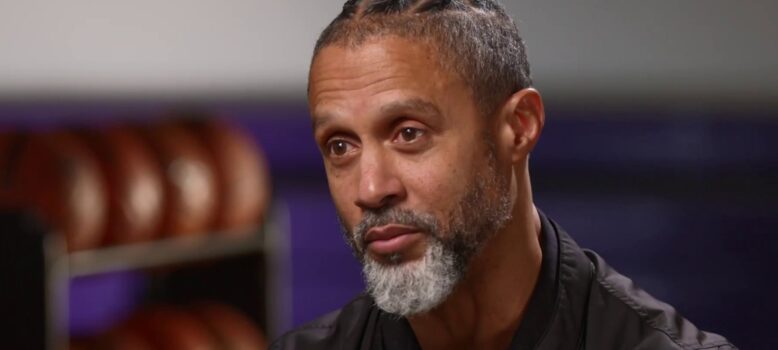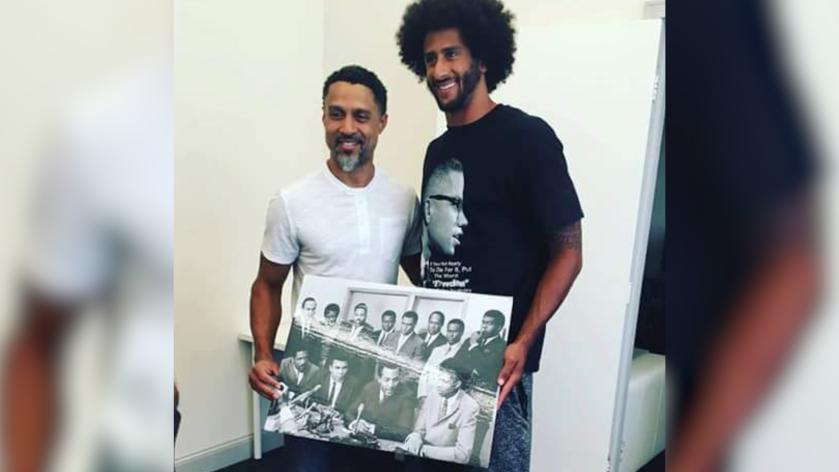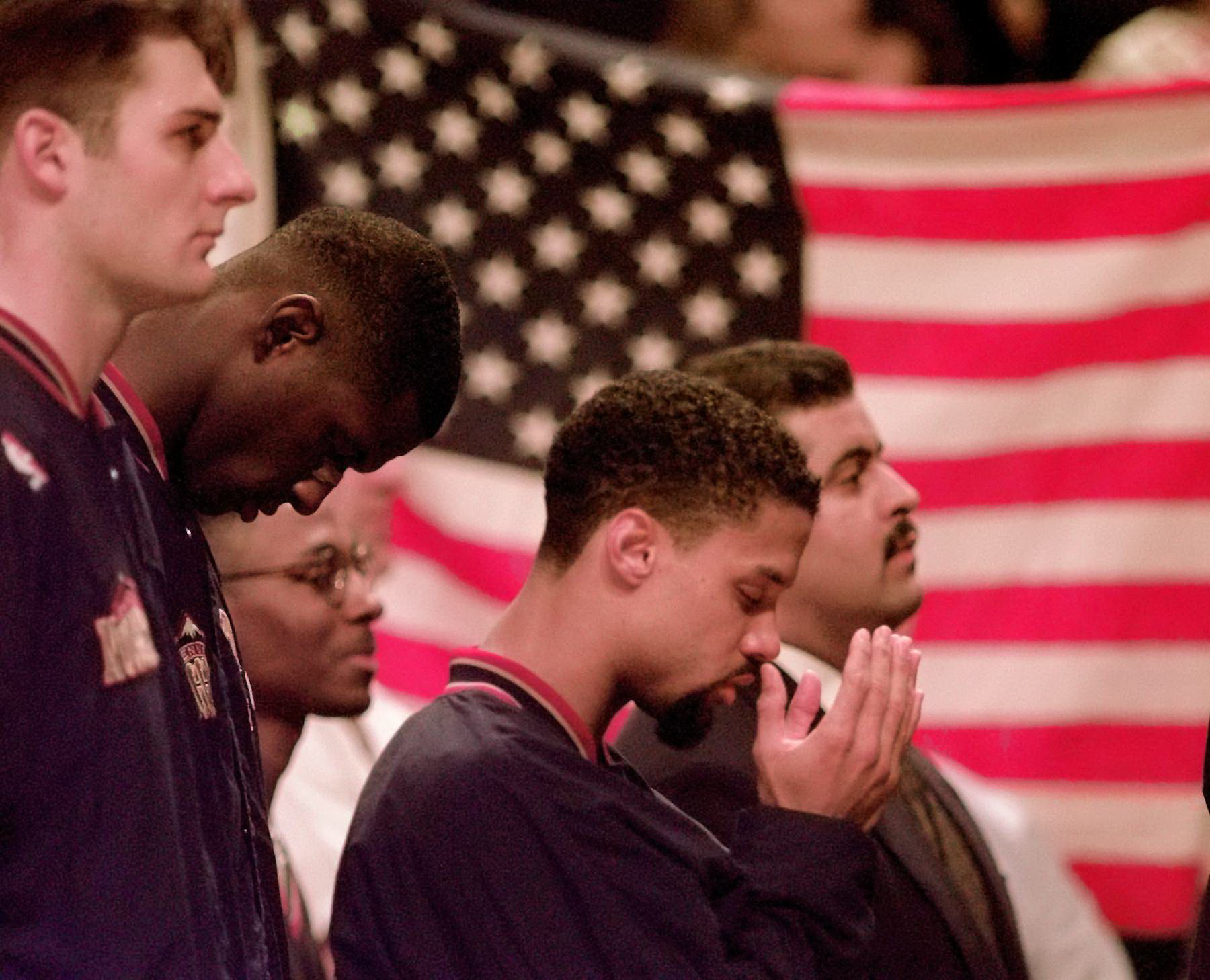
STAND: Mahmoud Abdul-Rauf doc proves he was as iconic as Muhammad Ali & Colin Kaepernick

In 1996 I went to the Skydome with a buddy to watch the Toronto Raptors take on the Denver Nuggets.
I don’t remember much about the actual game, but one moment does stand out as one of the best memories I have had in relation to professional sports. The neat thing is that I didn’t realize it was so poignant until yesterday when I watched the new documentary ‘STAND’ – the story of Mahmoud Abdul-Rauf.
Mahmoud Abdul-Rauf talks about how his high school head coach, was hiding his letters and how he almost missed out on the prestigious Nike camp until he confronted him.
Watch more on the latest episode. pic.twitter.com/DSosuQUhqJ— Stephen A Smith (@stephenasmith) February 3, 2023
I was standing near the laneway where the players entered and exited the court. Dikembe Mutombo walked by and I made the fatal mistake of touching his arm as my hand was instantly soaked with Dikembe sweat. After using my Raptors fan towel to wipe my hand, I saw another Nuggets player standing about ten feet away. I knew who Abdul-Rauf was from news reports detailing how he wouldn’t stand for the American national anthem, but I also knew he was one of the best guards in the NBA.
When I discovered a documentary had been made about Abdul-Rauf, who used to go by the name Chris Jackson, I settled in and spent the following hour and 45 minutes enthralled by what I was seeing. Abdul-Rauf was from one of the poorest areas of Mississippi, and overcame Tourrette’s Syndrome and abject poverty to become one of the most coveted players in the NBA draft. The Denver Nuggets took him 3rd overall and despite a slow start, he eventually became a star in the NBA.
That’s when things took a turn and propelled Abdul-Rauf onto the path he still walks along today.
How @mahmoudar123 was perceived and covered differently after he changed his name to Mahmoud Abdul-Rauf… pic.twitter.com/9WRZStTA2f
— Jalen Rose (@JalenRose) February 3, 2023
In his quest to find a faith that suited him, Abdul-Rauf found Islam, and, like Muhammad Ali and Kareen Abdul-Jabbar before him, changed his name from Chris Jackson to Mahmoud Abdul-Rauf. He also did something that, in 1996, was unheard of; he refuse to stand for the national anthem.
And all hell broke loose.

To watch the news clips from that time is to be propelled forward in time from 1996 to 2016 when San Francisco 49ers quarterback Colin Kaepernick took a knee during the national anthem in what eventually became the sports story of the decade. While I am sure some pundits made the comparison, Abdul-Rauf’s story was barely mentioned despite being the precursor to everything Kaepernick was embarking on, including the media frenzy and all-around hatred that followed him.
But behind the glare of the cameras and the controversy, one that was steeped in racism and an anti-Islamist bent, Abdul-Rauf had something that most star athletes do not have – humility. Yes, he stood by his morals and ethics, telling reporters exactly how he felt and why he was doing what he was doing, but when he did it he had a certainty in his voice that transcended the controversy. It’s just that Americans weren’t listening. They went as far as to burn down his family home., and even that did not deter him.
Mahmoud Abdul-Rauf averaged damn near 30ppg at LSU, then got blackballed by the League for standing up for his beliefs…#STANDDoc streaming now on @shobasketball pic.twitter.com/yBOeu2bBTV
— Josiah Johnson (@KingJosiah54) February 3, 2023
The NBA then blackballed him, and his career was essentially over. He was dealt to the Sacramento Kings where he played for one season before playing internationally in Turkey for a few months. He did come back after that and played 41 games for the Vancouver Grizzlies before retiring for good.
The thing about Abdul-Rauf was that he was just being himself. He wasn’t hurting anyone by sitting and praying during the anthem, and in an age where protests can sometimes feel like an actual occupation, one man silently praying seems like the best way possible to make a political statement.

Back to 1996. Mutombo walked away and I locked eyes with Abdul-Rauf. I offered my hand and he walked over. He seemed somewhat surprised, as if he was living during a time where nobody wanted to have anything to do with him that didn’t include expletives and insults. He shook my hand and we had a short exchange.
“You all good?” I asked.
“Yes, I am. How about you?” he replied. “I’m good. Don’t worry about them,” I said, referring to the idiots beside me who were booing.
“I never do,” he replied.
I knew it was an interesting exchange at the time, but STAND made me realize that I was conversing with and shaking the hand of someone whose legacy wouldn’t be known for another 20 years.
STAND is curently playing on SHOWTIME.







